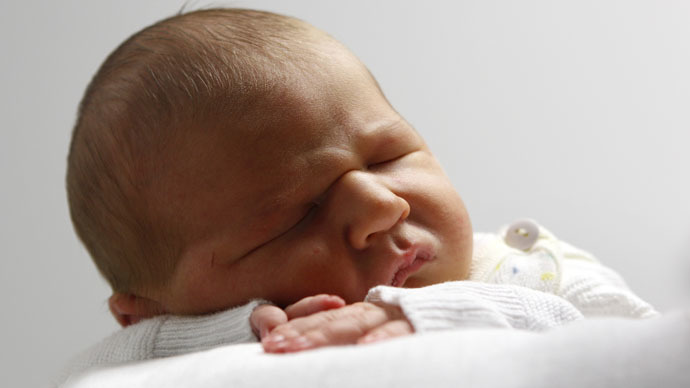MPs approve draft ‘3 parent baby’ law

MPs voted to allow fertility treatments for women with mitochondrial diseases, permitting the creation of babies with DNA from three different people.
The procedures, which are aimed at stopping the transfer of genetic diseases, was debated by MPs and approved with 382 votes for and 128 against. Their decision will then be passed to the House of Lords.
The UK could now be the first country to legalize the creation of children with DNA from three different parents, with three parent children born as early as 2016.
The vote has prompted backlash from several institutions, with some senior Catholic Church figures calling for the procedures to be blocked, as one treatment involves the destruction of a fertilized egg.
Most DNA is found in the nucleus of the cell and controls factors such as appearance. However, there are small reserves of DNA found in mitochondria, which, if defective, can pass life-threatening diseases on to embryos.
READ MORE:UK military experts warn of ‘weaponized Ebola’ – report
The technique is aimed to help eradicate these genetic diseases, which can lead to brain damage, heart failure and blindness, passed on through mitochondrial DNA. Mitochondrial diseases are only passed on through the mother and usually take hold during infancy.
The procedure involves a modified version of In Vitro Fertilization (IVF) to combine the DNA of the two parents with the healthy mitochondria of a second woman.
Critics of the procedures say allowing parents to choose to use DNA from a third party would be the first step to creating ‘designer babies’, whose traits and characteristics have been chosen by parents. In fact, only 0.1 percent of the baby’s DNA would be from the second woman.
The government backed the measures in principle, but gave the House of Commons a free vote as it is an issue of conscience rather than party politics.
Professor Doug Turnbull, the director of the Wellcome Trust center for mitochondrial research where the technique was pioneered, urged MPs to vote in favor.
READ MORE:Revolutionary ‘Da Vinci’ robot performs breakthrough micro-surgical treatment
He told the BBC the measures were primarily pioneered by patients.
“This is research that has been suggested by the patients, supported by patients and is for the patients, and that's an important message.”
The Catholic and Anglican Churches, however, last week said they were skeptical about the safety and ethics of the procedures.
Some scientists, too, doubt the safety of patients, despite a review from the Nuffield Council on Bioethics, which said the creation of three-person babies was ethical, and three further scientific reviews by the Human Fertilisation and Embryology Authority (HFEA), which suggest the technique is “not unsafe.”
Dr. Ted Morrow, from the University of Sussex, believes there are still uncertainties.
“I have some concerns about the safety, I'm really not happy that the reviews have been as exemplary as other people think they are.”
HEFA is expected to grant Newcastle Fertility Centre the first permission to carry out the procedures.












